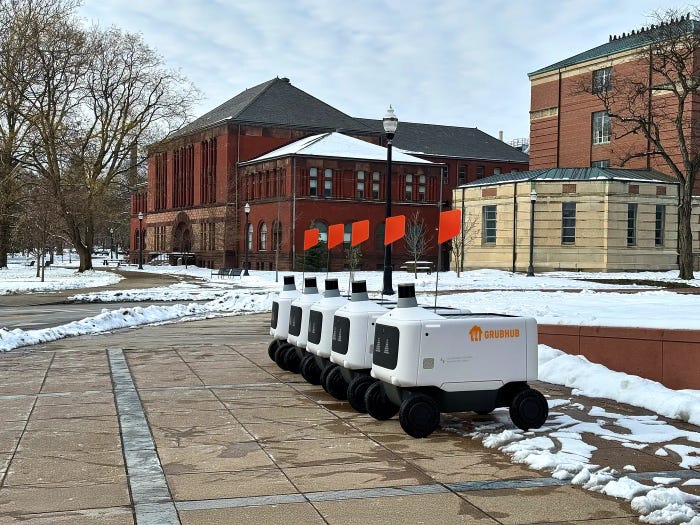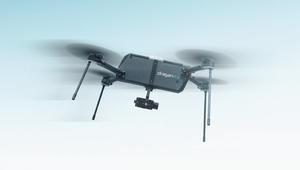Deloitte Survey: Businesses Show Tempered Optimism on Generative AIDeloitte Survey: Businesses Show Tempered Optimism on Generative AI
The initial fervor for generative AI has been leavened with pragmatism as organizations confront the complexities of actually deploying the technology

The frothy excitement with which companies greeted the promise of generative AI a year ago has slowed to more of a simmering optimism as they confront the complexities of turning its possibilities into results, a new survey finds.
While generative AI technology continues to advance at incredible speed, “most organizations are moving at the speed of organizations, not at the speed of technology,” write the authors of Deloitte’s fourth State of Generative AI in the Enterprise.
“GenAI use cases are rapidly proliferating in leading enterprises across industries,” Deloitte Global CEO Joe Ucuzoglu said. “We are seeing a shift as leaders move past the initial hype to strategically deploying GenAI in the core of their businesses. Focus is essential, prioritizing demonstrated use cases with measurable return on investment (ROI).”
The survey, the fourth in a quarterly series, aims to track the adoption of generative AI in business and builds on Deloitte’s State of AI in the Enterprise, which has been running for six years. The latest installment was conducted in the third quarter of 2024 and surveyed 2,773 director- to C-suite-level respondents. Those surveyed are involved in piloting or implementing generative AI at major organizations in 14 countries and six industries: consumer; energy, resources and industrials; financial services; life sciences and health care; technology, media and telecom; and government and public services.
Among those surveyed, members of the executive suite expressed the greatest optimism about their organizations’ implementation of generative AI: 21% of C-suite respondents said they feel generative AI is already transforming their organization, versus only 8% of non-C-suite respondents.
“This doesn’t necessarily mean CxOs are out of touch with the challenges of adopting and deploying GenAI,” the report found. “It could be they are still playing the primary role of catalyst or cheerleader and are in the process of learning what it really takes to implement and scale GenAI.”
The pace of generative AI adoption at the individual level – through smartphones, customer service and search engines – has moved much faster than at the enterprise level due to a host of deployment challenges for large organizations. Top among the list in this survey were worries about regulatory compliance, which jumped 10 points from the first survey, a reflection of the challenges governments face in regulating such a rapidly evolving technology.
“This highlights respondents’ unease about which use cases will be acceptable, and to what extent their organizations will be held accountable for GenAI-related problems,” the report found.
Enterprises are still largely in the experimental phase of generative AI adoption, with scaling to actual use cases a longer-term goal. More than two-thirds of respondents said they expect 30% or fewer of their current experiments to be fully scaled in the next three to six months. Individual company actions vary widely, however, with more experiments being conducted at large organizations or those in key sectors like technology, media-telecom, life sciences and health care, or financial services.
The most common benefit sought from generative AI is improved efficiency and productivity, and 40% of respondents said they had already achieved what they were seeking there. Slightly more respondents had achieved results in new ideas and insights (46%) and innovation and growth (45%).
Among use cases, IT is hands-down the most fully scaled, at 28% of organizational functions. This should come as no surprise, the report states, given that one of generative AI’s best capabilities is generating computer code. The next-most promising use cases, according to respondents, were operations (11%), marketing (10%) and customer service and cybersecurity, which tied at 8%.
Among the most advanced generative AI initiatives being pursued by organizations, cybersecurity is paying the greatest dividends. The survey found that 44% of cybersecurity initiatives are delivering an ROI above expectations, compared to other advanced generative AI implementations, such as sales, finance and research and development, which are delivering ROI below expectations for a majority of respondents.
Looking ahead, AI agents, or agentic AI, in which software systems complete complex tasks and meet objectives with little to no human intervention, is expected to be the name of the game. Among respondents, 26% said their organizations are already exploring autonomous agent development to a “large extent” and 42% are exploring it to “some extent.”
“In the next phase of GenAI, we envision the development of specialized AI agents tailored to specific functions, like sales research, to manage the overwhelming volume of data,” said one respondent, a director of product management at a high-tech manufacturing company. “These agents will streamline processes, helping sales teams gather critical information quickly – without the need for extensive manual research. Multiagent workflows are a future possibility; however, we anticipate starting with single-agent solutions that can mature and scale efficiently, focusing on ROI as they evolve into production.”
This article was first published in IoT World Today's sister publication AI Business.
About the Author
You May Also Like


.jpg?width=700&auto=webp&quality=80&disable=upscale)
.jpg?width=700&auto=webp&quality=80&disable=upscale)

.jpg?width=300&auto=webp&quality=80&disable=upscale)


